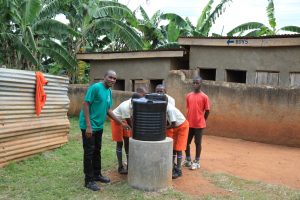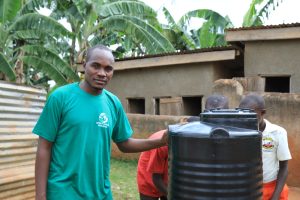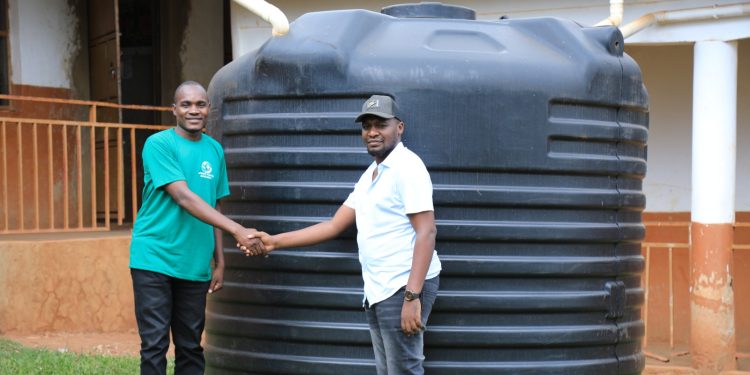To address Uganda’s escalating water crisis, Africa Climate Resilience has invested 150,000 USD in the donation of 275 water tanks to severely affected districts, ensuring clean water access, better hygiene, and strengthened climate resilience for vulnerable communities.
Through its wastewater management project, ACR is reshaping the narrative in semi-arid and hard-to-reach areas.
The initiative targets districts such as Rakai, Mbarara, Nakaseke, and Isingiro, where prolonged droughts and unpredictable rainfall have left thousands vulnerable to water scarcity.
“So far, we have donated 275 tanks at a total cost 150,000 USD mainly in Uganda in water stressed district of Rakai, Mbarara, Nakaseke, Isingiro among others,” revealed Julius Kitone, Executive Director of Africa Climate Resilience.
Kitone emphasized the organization’s broader vision, noting, “We work with communities, governments, and ecosystems to build resilience, promote sustainable development, and create a climate-secure Africa for future generations.”
The tanks, some with a capacity of up to 5,000 litres, are part of a wider infrastructure that includes handwashing facilities and rainwater harvesting systems all aimed at enhancing both access to water and public hygiene.
For residents like Noeline Nakuya, 62, from Magabi Kiteredde village in Rakai district, the tanks have been life-changing.
“I used to suffer with water scarcity during the prolonged droughts of June – September and January to mid March every year, but it is now history,” she said, highlighting how access to stored rainwater now supports her household chores and livestock, including cows, goats, and pigs.
Rosette Kakyala, another beneficiary from the same village, echoed the sentiment with a focus on cost savings.
“I used to spend not less than 2000 USD to meet my water bills annually but now since Africa Climate Resilience constructed a water harvesting facility for her with the capacity of 5000 litres, I no longer foot water bills,” she said.
Kakyala now uses the stored water not only for domestic use and irrigation but also as an income source by selling the excess.
Experts within ACR believe the intervention is not only solving immediate needs but building long-term resilience. Dr. Fred Alinda, Climate Change Expert and Director of Innovation and Research at ACR, underscored this point:
“Rain water loss management project has helped much in transforming lives of people but also improve agricultural yields,” he explained.
The initiative has also won praise from local leaders. Michael Yiga, a local council committee member in charge of welfare, emphasized the economic barriers many households face.
“Many families live on a hand to mouth lifestyle. They cannot afford to save and buy water harvesting equipment in their households. Building such water harvesting facilities for them has enhanced their productivity due to sustainable water supply,” he said.
Beyond water tanks, the organization has also distributed 5,000 fruit trees to promote food security and reforestation in communities hard-hit by climate change.
Kitone added that while Uganda remains a priority, the success of the initiative is encouraging ACR to scale its impact beyond borders.
“The project doesn’t stop in Uganda, but they are hoping to scale up to cover Northern Tanzania, South Sudan, Somalia and Kenya,” he noted.
According to research by Africa Climate Resilience, over 230 million people across Africa face water shortages, 4.1 million hectares of forests are lost annually, and severe droughts have increased by 30% over the past three decades making interventions like this more urgent than ever.
With 275 tanks already in place and a community-driven model at its core, ACR’s approach is not just about water it’s about sustainable empowerment in the face of a changing climate.





















